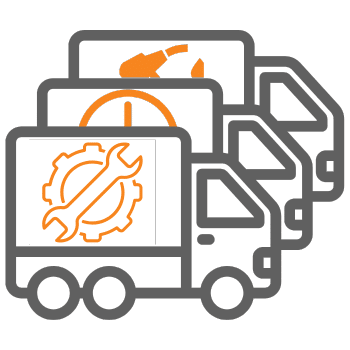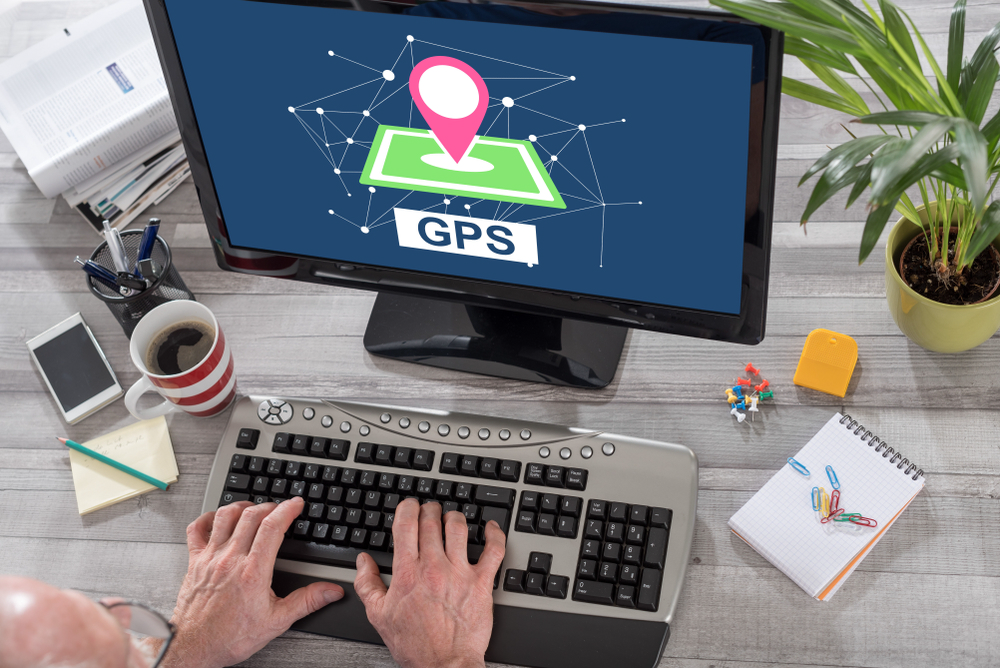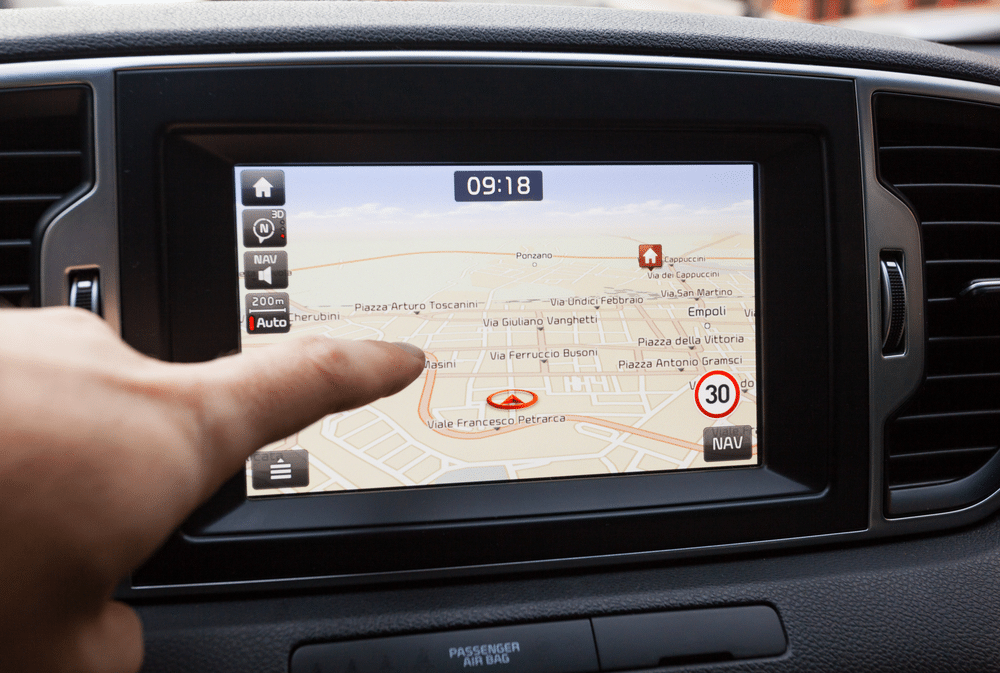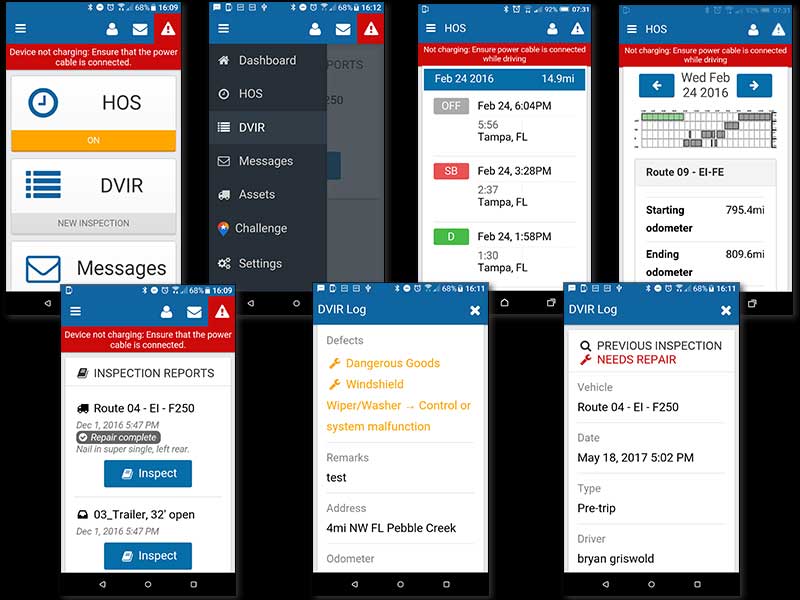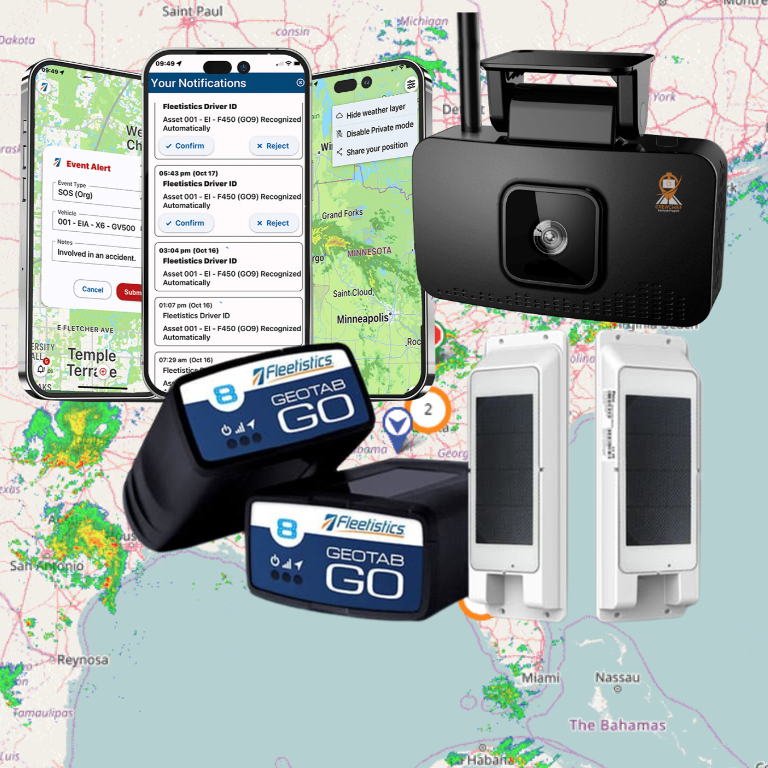View GPS Trackers
What it Was and What it is Now
In the fast-paced world of business, efficiency is key. For small business owners, managing a fleet of vehicles or equipment can be a daunting task.
Enter GPS trackers. These innovative devices have revolutionized the way businesses operate, offering real-time location data and a host of other benefits.
From optimizing routes to enhancing security, GPS trackers are a game-changer. They can lead to significant cost savings, improve customer service, and even help with regulatory compliance.
But how exactly do these devices generate this impact? And what makes them so cost-effective?
In this article, we’ll delve into the innovative use of GPS trackers today. We’ll explore how tracking solutions streamline operations, boost your bottom line, and give you a competitive edge in the marketplace. So, whether you’re a seasoned business fleet owner or just starting out, read how GPS trackers can transform your fleet and service delivery operations.
The Evolution of GPS Tracking Technology
The journey of GPS tracking technology has been nothing short of revolutionary. Initially developed for military use, this technology has seen vast improvements and declining cost to deploy over the decades. From its early applications in military navigation, GPS technology quickly expanded into civilian use. The first GPS trackers cost about $1200 per vehicle in 1997!
Affordable GPS tracking has not only made this technology accessible to businesses of all sizes, but it has also become a key tool that is essential to staying competitive.
Today’s devices are far more sophisticated, offering features such as real-time tracking, geofencing, telematics, and advanced data analytics. They have transformed from simple location providers to integral components of modern business operations.
This evolution reflects the growing demand for more efficient, connected, and intelligent systems. As businesses strive to enhance their operations, GPS trackers have stepped up, providing solutions that were once unimaginable. Continuous advancements in GPS tracking technology indicate an exciting future. Innovations are being integrated regularly, ensuring that businesses can stay ahead of their competition.
From improving fleet management to ensuring the safety of assets, the potential uses of GPS technology continue to expand.
Real-Time Location Data – The Cornerstone
Real-time location data is part of what we call the low hanging fruit. It has transformed how businesses manage their fleets. This feature provides a live view of vehicle positions, allowing managers to optimize routes and schedules effectively.
The ability to monitor vehicles as they move offers several advantages. Businesses can respond promptly to last-minute changes, saving valuable time and resources.
Key benefits of using real-time GPS tracking in fleet management include:
• Enhanced route planning
• Improved driver accountability
• Faster response times to incidents
Moreover, real-time data helps identify and resolve inefficiencies. Businesses can track drivers’ performance, ensuring they adhere to routes and avoid unauthorized stops.
This insight leads to more informed decisions, contributing to lower operational costs. With GPS tracking, small businesses gain a competitive edge, providing reliable services and efficient operations. This capability makes real-time location tracking indispensable for any fleet manager aiming to excel in their field.
Cost Savings Through Optimized Routes and Fuel Consumption
Optimizing routes can lead to significant cost savings for businesses. By using GPS trackers, companies can identify the most efficient routes, minimizing travel time and reducing fuel consumption. In addition, with this technology, managers can monitor traffic conditions in real time. This feature allows them to redirect vehicles away from congestion, maintaining smooth operations.
Incorporating GPS tracking for route optimization can result in numerous advantages:
• Reduced fuel expenses
• Lower vehicle maintenance costs
• Decreased carbon emissions
Tracking systems also aid in pinpointing inefficiencies, enabling businesses to address them before they escalate. With the right data, businesses can implement changes that boost both cost savings and environmental responsibility. Additionally, these systems support accountability among drivers. Knowing their routes are monitored, drivers are less likely to take unnecessary detours, leading to further cost reductions. Optimized route planning not only saves money but also enhances the overall efficiency of business operations.
Enhancing Security with Theft Recovery Features
GPS trackers play a vital role in enhancing the security of valuable assets. Vehicles equipped with these devices can be swiftly located, significantly improving chances of recovery in the event of theft. These trackers offer peace of mind to small business owners who face the risk of vehicle theft. By providing real-time location data, the technology enables quick response and retrieval, minimizing potential losses.
Advanced GPS trackers come with innovative features like geofencing, which notify owners if vehicles exit designated areas. This prompt alert system serves as a powerful deterrent, lowering the likelihood of unauthorized use.
Moreover, integrating GPS tracking into security measures can lead to reduced insurance premiums. By adding dashcam integration, risk of loss is further reduced. Insurers often offer discounts because the technology decreases the risk of loss. By utilizing theft recovery features and dashcam integration, business owners not only protect their assets but also enhance their overall security strategy.
Predictive Maintenance: Reducing Vehicle Downtime
Predictive maintenance is transforming how businesses manage their fleets. GPS trackers gather telematics data, providing insights into vehicle performance and potential issues. By analyzing this data, small business owners can proactively address maintenance needs.
This approach prevents unexpected breakdowns and reduces vehicle downtime, ensuring smoother operations. Implementing predictive maintenance with GPS trackers extends the lifespan of vehicles. Timely interventions maintain optimal efficiency and can result in significant cost savings over time.
Real-time alerts notify managers when a vehicle’s performance falls outside normal parameters. These alerts assist in scheduling maintenance before minor issues escalate into costly repairs.
Predictive maintenance enhances vehicle reliability and safety, crucial for businesses dependent on timely deliveries and appointments. Reliable fleet operations improve customer satisfaction and contribute positively to a company’s reputation.
With reduced downtime, businesses can maintain productivity levels. The strategic use of GPS tracking for predictive maintenance is a valuable investment, supporting operational efficiency and safeguarding the bottom line.
Improving Customer Service with Accurate ETAs and Delivery Tracking
In today’s competitive market, customer satisfaction depends significantly on transparency and reliability. Innovative use of GPS trackers play a pivotal role in enhancing customer service by providing accurate Estimated Time of Arrival (ETA) for deliveries.
Customers are always eager to know when their packages or a service provider will arrive. With real-time GPS tracking, businesses can offer precise updates, enhancing trust and customer experience. This transparency reduces customer anxiety and minimizes the need for constant updates. Reliable tracking empowers customers, allowing them to plan their day accordingly. This convenience often results in positive reviews, repeat business, and an enhanced brand image.
Moreover, using GPS trackers for delivery and service call tracking minimizes delays. Businesses can quickly address issues such as traffic jams or route deviations, ensuring timely deliveries and service. Streamlined tracking improves operational efficiency, allowing staff to focus on core tasks, rather than answering an unending stream of “when will it be here” calls. Enhanced customer experience from accurate ETAs can significantly benefit a business’s bottom line.
Seamless Integration with Business Software
GPS trackers have advanced beyond mere location tools, now integrating seamlessly with various business software systems. This integration enables streamlined operations and data centralization, boosting efficiency significantly. By syncing with CRM or ERP systems, GPS trackers provide real-time data access, minimizing manual entry errors.
Businesses benefit from automated processes, reduced workload, and enhanced decision-making, achieving a cohesive operational system. This synergy between GPS tracking technology and business software becomes instrumental in propelling businesses toward greater productivity and success.
Data-Driven Decision Making and Strategic Planning
Data is a powerful asset for any business, and GPS trackers offer a wealth of information. From vehicle routes to fuel consumption patterns, this data helps build comprehensive insights into operations.
Analyzing data from GPS tracking systems can reveal inefficiencies, paving the way for strategic improvements. For example, a business might discover optimal routing options, reducing travel time and costs. Such insights allow for informed, proactive decision-making.
Moreover, historical data collected from these systems can identify trends and forecast future needs, aiding in strategic planning. This foresight helps businesses stay ahead of the competition by continuously optimizing their operations based on concrete evidence.
Compliance and Regulatory Benefits of GPS Trackers
Adhering to industry regulations is vital for businesses, and GPS trackers can facilitate this compliance seamlessly. For instance, they help track Hours of Service (HOS) for drivers, ensuring adherence to legal requirements.
Additionally, GPS tracking provides transparent records, which can be invaluable during audits or inspections. This data not only supports regulatory compliance but also helps avoid penalties and fines, offering a strategic advantage.
The Importance of Professional Installation Services
Professional installation of GPS trackers is often overlooked but plays a crucial role in their effectiveness. A well-fitted device ensures accurate data transmission and long-term reliability, maximizing the return on investment. Conversely, incorrect installation can lead to data inaccuracies, potentially causing disruptions in your business operations.
Professional services ensure that the trackers are positioned optimally, reducing the likelihood of operational glitches.
Furthermore, expert installation minimizes downtime, as professionals can efficiently integrate the devices without disrupting daily activities. This efficiency keeps your business running smoothly, emphasizing the value of professional installations for seamless GPS tracking.
If you have mechanics on staff with the skills to install your devices, it is certainly an option. Just be sure they review the helpful installation guidance provided by the technology provider.
Conclusion: The ROI of GPS Tracking for Small Businesses
Implementing GPS tracking technologies can be a strategic advantage for small and large businesses. These innovative tools streamline operations, leading to significant cost savings and enhanced security.
The investment in and innovative use of GPS trackers quickly pays off through improved efficiency and better asset management. Small businesses can expect a positive return through optimized routes, reduced fuel costs, and enhanced customer service.
As technology continues to evolve, the benefits of using GPS trackers will only grow. For business owners looking to stay competitive and ensure seamless operations, investing in GPS tracking is a compelling choice that leads to long-term success.
